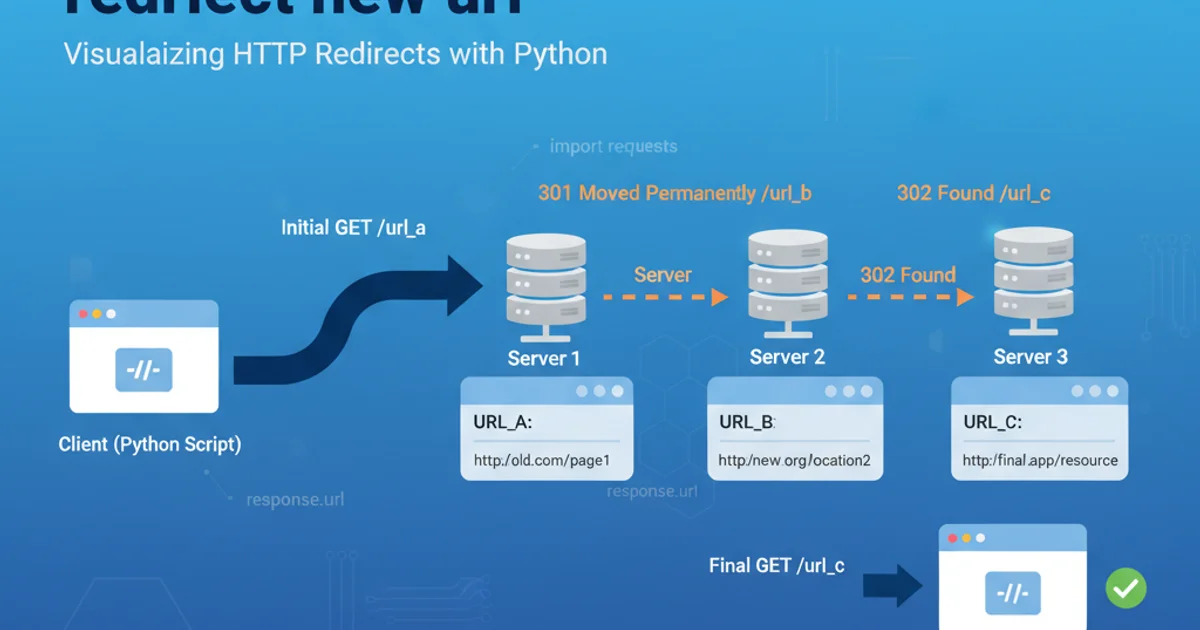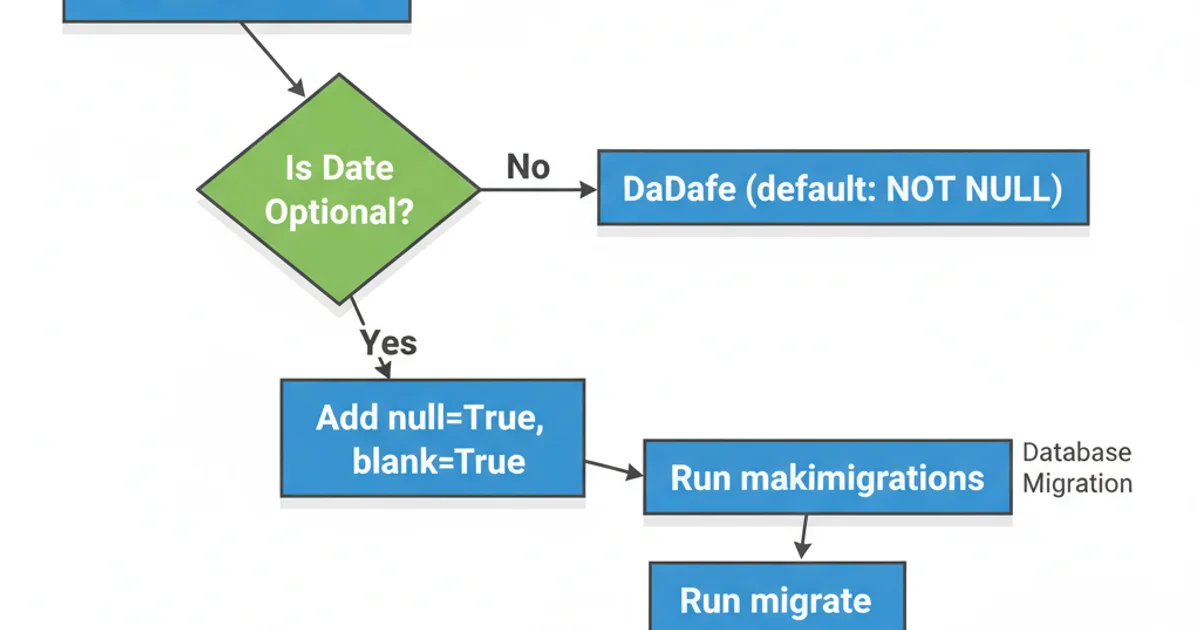How to insert NULL into Django's DateField?
Categories:
How to Insert NULL into Django's DateField

Learn the correct methods to store NULL values in Django's DateField, ensuring your database schema and model definitions support optional date entries.
Django's DateField is designed to store date information. However, there are many scenarios where a date might be optional or not yet available. Directly assigning None to a DateField in your Django model might not work as expected if the field isn't configured to accept NULL values at the database level. This article will guide you through the necessary steps to properly allow and insert NULL into a DateField.
Understanding Django's DateField and NULL
By default, Django model fields are NOT NULL at the database level. This means if you try to save an object with None in a DateField that hasn't been explicitly configured to accept NULL, you'll encounter a database integrity error. To allow NULL values, you need to set two specific options in your model field definition: null=True and blank=True.
null=True and blank=True? null=True affects the database schema, allowing NULL values. blank=True affects form validation, allowing an empty value to be submitted. For optional fields, you almost always need both.Configuring Your Django Model
The first and most crucial step is to modify your Django model to explicitly allow NULL values for the DateField. This involves adding null=True and blank=True to the field definition. After modifying your model, you must create and apply database migrations.
from django.db import models
class Event(models.Model):
name = models.CharField(max_length=200)
start_date = models.DateField()
end_date = models.DateField(null=True, blank=True) # This field can now be NULL
def __str__(self):
return self.name
Example Django model with an optional end_date field
After updating your models.py file, run the following management commands to apply the changes to your database schema:
python manage.py makemigrations
python manage.py migrate
Commands to create and apply database migrations
Inserting NULL Values
Once your model and database are configured to accept NULL values, you can simply assign None to the DateField when creating or updating model instances. Django will handle the conversion to the appropriate NULL value in your database.
from datetime import date
from .models import Event
# Creating an event with a specific end_date
event1 = Event.objects.create(name="Conference", start_date=date(2023, 10, 26), end_date=date(2023, 10, 28))
print(f"Event 1 End Date: {event1.end_date}")
# Creating an event with a NULL end_date
event2 = Event.objects.create(name="Workshop", start_date=date(2023, 11, 15), end_date=None)
print(f"Event 2 End Date: {event2.end_date}")
# Updating an existing event's end_date to NULL
event1.end_date = None
event1.save()
print(f"Event 1 Updated End Date: {event1.end_date}")
Examples of creating and updating Event objects with None for the DateField
None to a DateField without null=True and blank=True will result in an IntegrityError (e.g., NOT NULL constraint failed) when saving to the database.Handling NULL in Forms and Templates
When using Django forms, if a DateField is defined with blank=True, the form field will automatically be optional. In templates, you can check if a DateField is None before displaying it.
# forms.py
from django import forms
from .models import Event
class EventForm(forms.ModelForm):
class Meta:
model = Event
fields = ['name', 'start_date', 'end_date']
Example Django ModelForm for the Event model
{% if event.end_date %}
<p>End Date: {{ event.end_date|date:"M d, Y" }}</p>
{% else %}
<p>End Date: Not specified</p>
{% endif %}
Template logic to display DateField conditionally

Workflow for making a Django DateField nullable